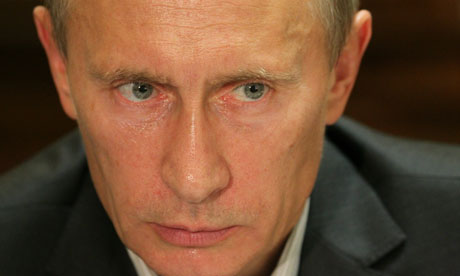It is virtually impossible to have a sane, temperate conversation about President Donald J. Trump and what the Russians might or might not have done to influence the outcome of the 2016 election. From the corner bar to the White House briefing room, folks have their heels dug in and aren’t budging, with each side passionately determined to prove the other wrong.
Most Republicans—except the ones who somehow manage to show up on the news chat shows with astonishing regularity—seem to regard the whole business as a tempest in a teapot at best, and at worst, a Machiavellian effort undertaken by entrenched liberals inside the U.S. government to remove Trump from office.
Democrats, meanwhile, mainly think that Trump and the Russians conspired to steal the presidency from Hillary Clinton. How could she have possibly lost the election otherwise?
This makes some sense, at least as a matter of sentiment. She led in every poll. The pundits said Trump was dead in the water at every turn. Her victory, as reported by media gods lording their authority over the public, seemed preordained. If she lost it could only be as the result of skullduggery.
That’s understandable. If Clinton had won and the stories about Russian involvement in voter manipulation got out, there wouldn’t be a Republican in Washington who wasn’t demanding an investigation and calling the legitimacy of her presidency into question. The one screaming loudest, by the way, would be Trump himself.
That’s not what happened. Trump won. Yet the American people are being led around by the nose by Democrats and their allies in the media, force-fed a diet of information leading to the conclusion his victory was inexorably tied to non-specific Russian malfeasance that made the president Putin’s puppet, which would be clear to everyone if only he’d release his tax returns.
Leaving aside the 15-second soundbites and the loose language, it all boils down to three essential questions, the first of which is simply this: Did Russian intelligence operatives find a way to change ballots cast for Clinton into votes for Trump anywhere in America? The answer to that is almost unequivocally “No.” No responsible party has suggested they did—although there are people who aren’t bothered too much if what they say leaves the impression Putin and company did.
Second, did representatives of the Trump campaign sit down with people working openly on behalf of the Russians to craft a plan that, when executed, would influence the opinions of the American electorate and its attitudes how it would vote in 2016?
The answer to this appears to be “No” as well.
Did the Russians do things that were disruptive? It’s clear they did. They pushed fake news and bogus ads out through social media, but did it apparently of their own accord and without the knowledge of or input from Trump’s campaign. That’s what collusion means. They had to be actively working together.
Third, did persons inside in the U.S. intelligence community and the Obama administration undertake a campaign of political espionage to push a false narrative damaging to Trump’s electoral hopes, created by operatives of the Democratic National Committee or the Clinton campaign?
It would be bad for the nation’s republican institutions and democratic traditions if it were true. It’s the “deep state argument” put forward by the president since the scandal erupted and, when he did, the intelligentsia laughed. It would be unthinkable for such a thing to be true.
Ever since Watergate, America has been sensitive to the manipulation of the U.S. intelligence community for partisan gain. When it became clear Richard Nixon did it as part of the attempted cover-up, there were those, including a then-unknown congressional committee staff lawyer named Hillary Rodham, who considered it an impeachable offense.
As we can now read, even in the heavily redacted versions of the Foreign Intelligence Surveillance Act, applications for warrants against former Trump aide Carter Page just released by the FBI, it sure looks like some in the intelligence community overstepped their bounds.
Further investigation is warranted. The picture’s not yet clear. There’s still a lot of shading and detail to be filled in, but the background is taking shape. The FBI relied on evidence compiled and funded by partisan operatives to get the FISA court to authorize the surveillance of at least one individual working for the Trump campaign at a low level to get its collective ear to the keyhole. More information is required before the last of the three questions can be answered with any kind of certainty.
